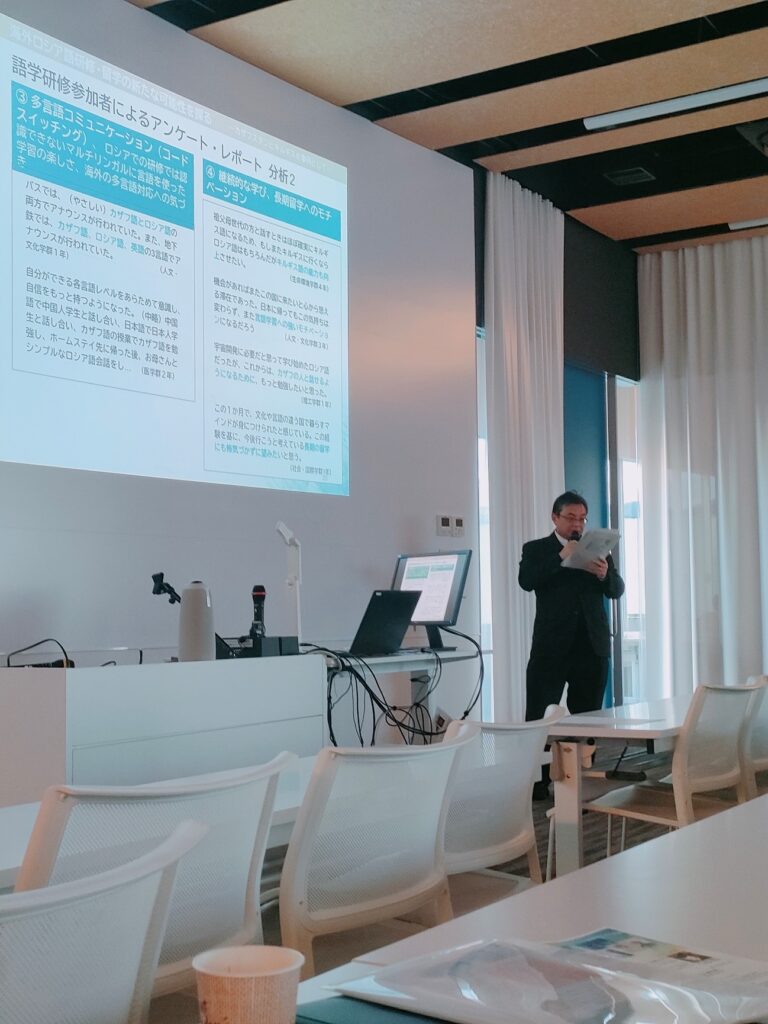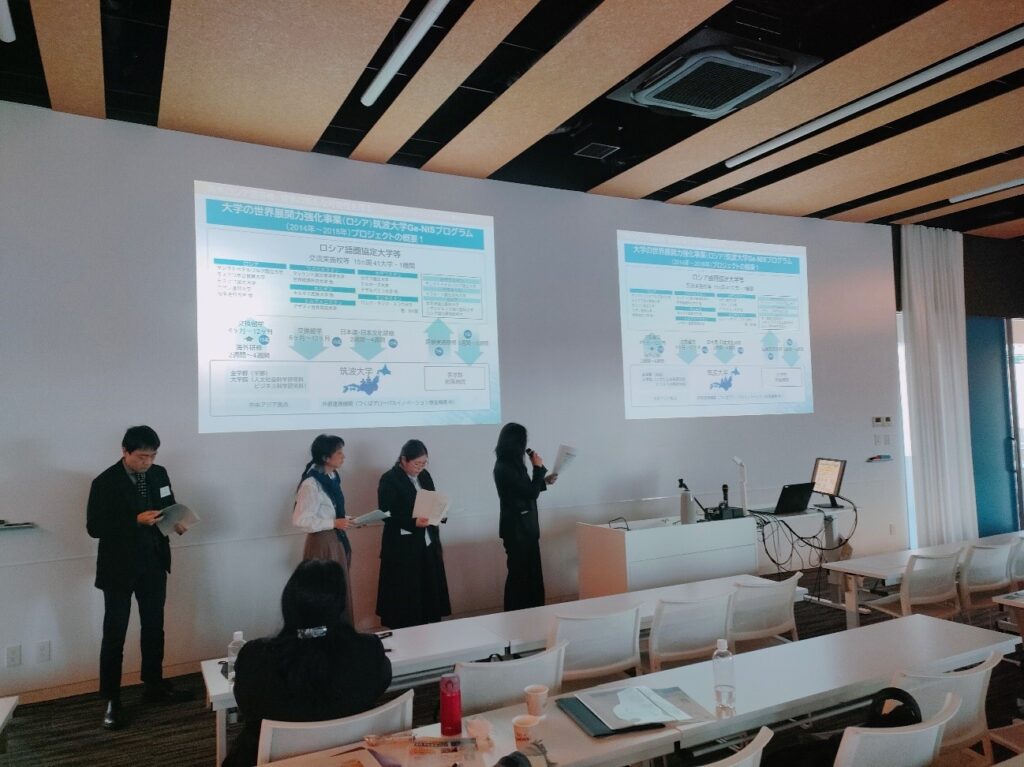All faculty members of the Russian language department at the University of Tsukuba, led by the NipCA project faculty and staff, delivered presentations at the 3rd Research Meeting of the Japanese Association for Studies in Russian Language Education, held at Kyoto University of Foreign Studies on December 3, 2023. The titles and presenters are outlined below:
Title: “Exploring New Possibilities for Russian Language Training and Study Abroad: The Case of Kazakhstan and Kyrgyzstan”
Presenters: Toshinobu Usuyama, Professor of Humanities and Social Sciences
Yuji Kajiyama, UIA, Student Affairs, Part-time Lecturer of the Russian Language
Yukako Tokuda, Part-time researcher, Division of Humanities and Social Sciences
Yurinobu Kato, Professor of Humanities and Social Sciences
Yukiko Yamamoto, Associate Professor, Humanities and Social Sciences
Asuka Mitsui, part-time lecturer of the Russian Language
This report introduced the research and educational activities that the University of Tsukuba has been conducting in the Russian-speaking region through explanations of the University of Tsukuba’s partner institutions in former Soviet countries, overseas office locations, and three major ongoing and completed projects, “the Inter-University Exchange Project – University of Tsukuba Ge-NIS Program (Russia)”, “Study in Japan Global Network Project (Russia and CIS),” and “the Nippon Foundation Central Asia-Japan Human Resources Development Project (NipCA).”
Japanese universities currently have suspended sending students to Russia in the aftermath of the war in Ukraine, the language training programs provided by the University of Tsukuba in Kazakhstan and Kyrgyzstan since 2014, where Russian is the official language, hold significant potential. In the report, by analyzing the questionnaires and reports from participants in a training programs in Kazakhstan and Kazakhstan conducted by the University of Tsukuba this year for the first time in several years since the COVID-19 outbreak, and derived five possibilities: rediscovery of the value of Russian language, discovery of the value of local languages, possibility of multi-language education, possibility of forming domestic student networks, and possibility of using platform universities for study abroad and training.
The NipCA project is not only set to continue conducting training programs in the Central Asian region but will also collaborate with domestic universities in sending students to study abroad. Simultaneously, it aims to disseminate research results with a focus on Russian language and local language education.





